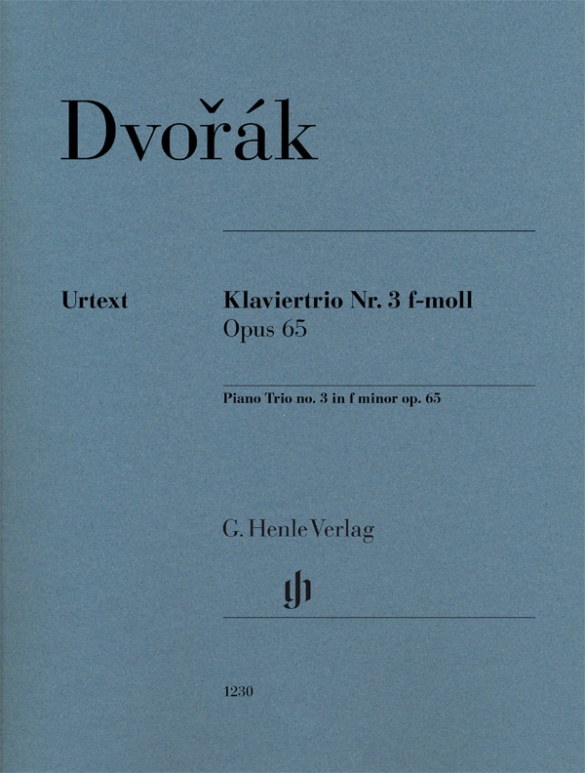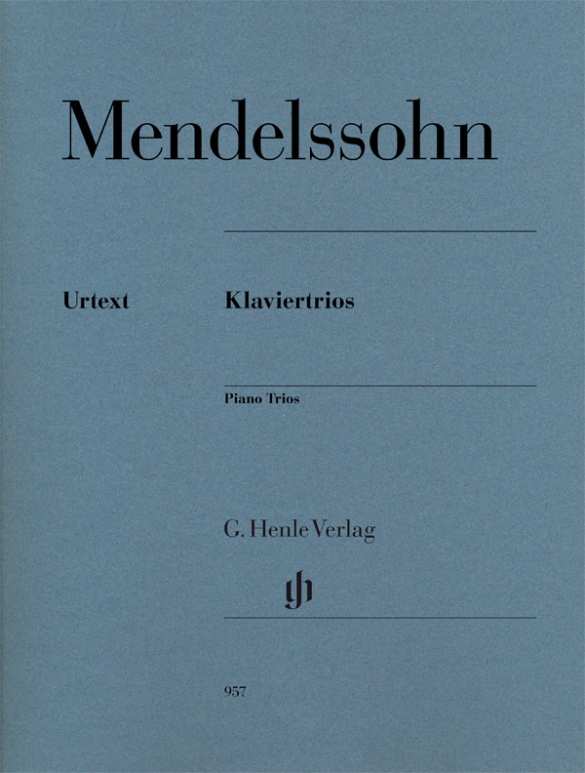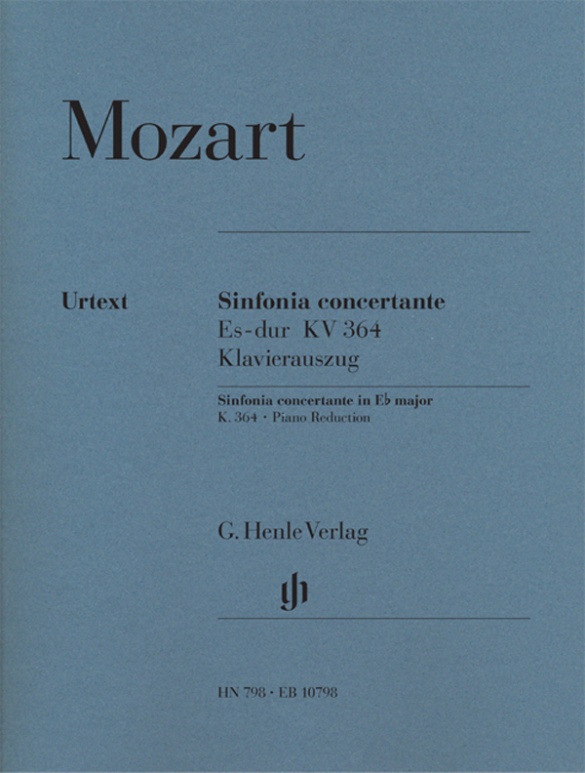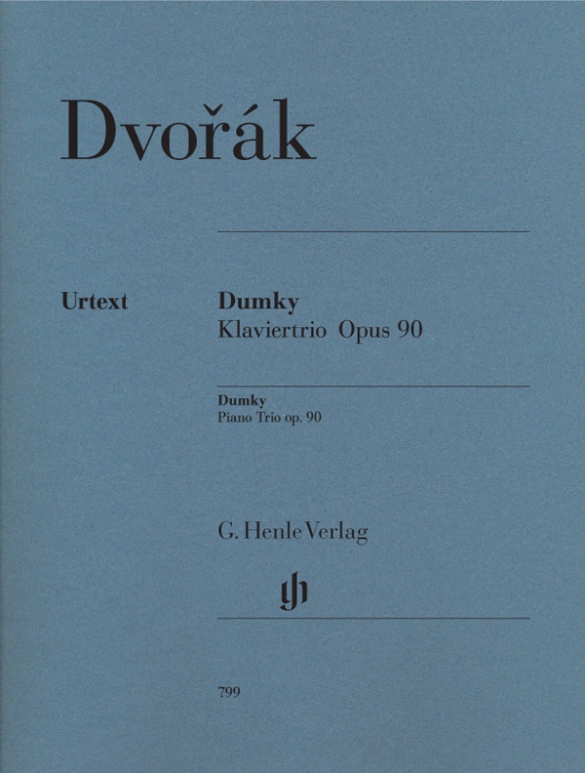

Antonín Dvorák
Dumky · Piano Trio op. 90
“At certain points it will be like a serious song, at others like a happy dance …” This was how Dvorák described the work which he was composing at the time to a friend in 1890. The word “Dumka” (plural “Dumky”) actually describes a Slavic dance-form with a noticeable alternation between melancholic and dance-like boisterous passages. The Dumka is a recurring theme in Dvorák’s chamber music; although always only as a single movement. The unusual form of this piano trio – it has a succession of six “Dumky”, each with its own very distinctive character and great expressiveness – means that it is one of the Czech master’s best-loved works.
Content/Details
Exclusively in the Henle Library APP
Fingerings by: Boulanger Trio
About the Composer
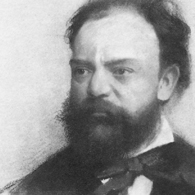
Antonín Dvorák
With Smetana he is the most famous Czech composer of the nineteenth century, contributing to the dissemination and appreciation of Czech music throughout the world. Among his around 200 works, encompassing all standard genres, are nine symphonies, fourteen string quartets, and twelve operas.
| 1841 | Born in Nelahozeves (Mühlhausen) on the Vltava River on September 8, the son of a butcher and innkeeper. |
| 1853 | Attends the training school in Zlonice; there he receives a comprehensive musical education from Josef Toman and the cantor Antonín Liehmann; subsequent education in Česká Kamenice (1856–57). |
| 1857–59 | Studies at the organ school in Prague. Until 1871 he will earn his living as a music teacher, organist, and violist. |
| 1861 | String Quintet No. 1 in A minor, considered his first work. |
| 1862 | Position as solo violist in the orchestra of the Bohemian Provisional Theater (conducted by Smetana, among others) |
| 1873 | Breakthrough with the premiere in Prague of his patriotic hymn “The Heirs of the White Mountain,” Op. 30. Employment at the private Prague School of Music. Several state scholarships. |
| 1874–77 | Organist at St. Adalbert church. |
| from 1876 | “Moravian Duets,” Opp. 20, 29, 32, and 38 (1876–77), “Slavonic Rhapsodies,” Op. 45 and the first series of “Slavonic Dances,” Op. 46 (both from 1878) enjoy great success. His fame abroad grows. |
| 1882 | Premiere of the opera “Dimitrij”, in the tradition of grand opera. |
| 1884 | First invitation to England, after which eight more will follow. |
| 1886 | Premiere of his oratorio “Saint Ludmila,” Op. 71. |
| 1891 | Professor of composition at the Prague Conservatory. |
| 1891–95 | Director of the National Conservatory of Music in New York. |
| 1893 | Premiere in New York of Symphony No. 9, “From the New World,” Op. 95 (American folkloric elements, cyclic techniques). |
| 1901 | Premiere in Prague of his most famous opera, “Rusalka.” |
| 1904 | Premiere in Prague of his last opera, “Armida.” Death in Prague on May 1. |
About the Authors

Andreas Groethuysen (Fingering Piano)
Prof. Andreas Groethuysen, born in 1956 in Munich, studied music with Ludwig Hoffmann in Munich and, on a scholarship from the “Studienstiftung des Deutschen Volkes”, with Peter Feuchtwanger in London.
After several years as a soloist, Groethuysen formed a piano duo with Yaara Tal, which has now become the focus of his artistic work. The duo regularly performs in many European countries, in Israel, China, North and South America. In exclusive cooperation with SONY CLASSICAL the internationally acclaimed piano duo has released a great many CDs – 28 to date – almost all of which have been awarded prizes.
Product Safety Informations (GPSR)

G. Henle Verlag
Here you can find the information about the manufacturer of the product.G. Henle Verlag e.K.
Forstenrieder Allee 122
81476 München
Germany
info@henle.de
www.henle.com
Henle’s newly researched, pristine edition, complete with the composer’s own metronome markings for Dumky 1–5, contains an extensive preface and critical commentary on variants in the sources.
Strings, 2009Questa prima edizione è assunta ora a punto di partenza per un’accurata comparazione delle fonti che restituisca integrità al testo musicale originale. A curare per Henle l’autorevole operazione editoriale è Klaus Döge.
Giornale della Musica, 2008Die Ausgabe ist ein Muss für alle Musiker, welche aus veralteten Editionen spielen, sie ist auch Anregung, den Notentext eines bekannten Stückes zu hinterfragen und eingefleischte Gewohnheiten über Bord zu werfen. Frisches Blut tut gut, vor allem «abgespielten» Stücken.
Schweizer Musikzeitung, 2008Vorbildlich auch der ausführliche Anmerkungsapparat und ein Kritischer Bericht, der Alternativen aufzeigt und für erhellende Hintergrundinformationen sorgt.
Ensemble, 2007recommendations
autogenerated_cross_selling
Further editions of this title
Further editions of this title


